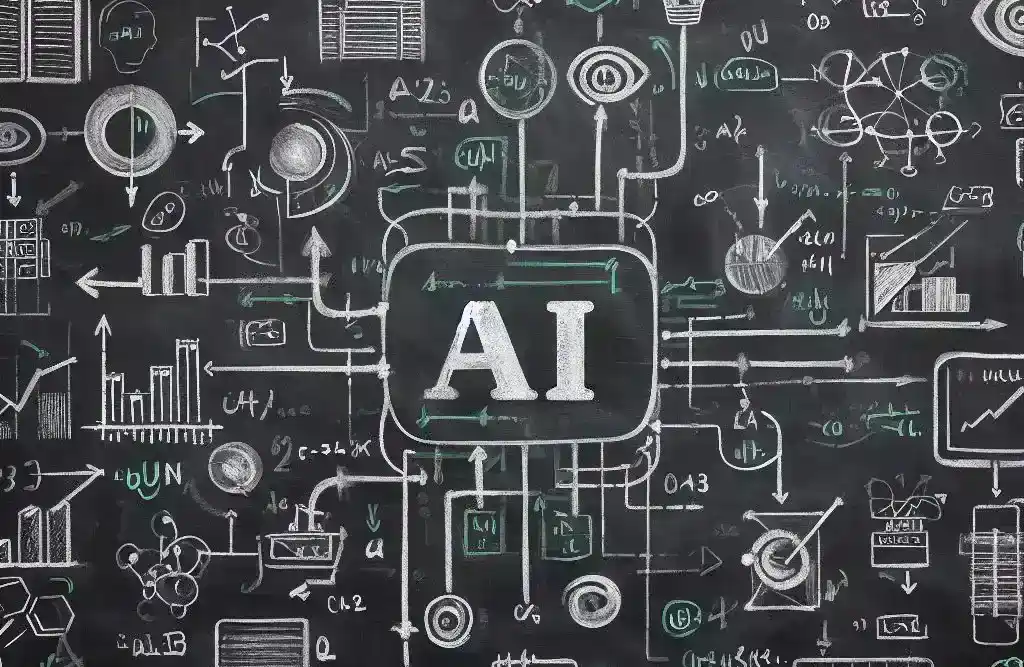Table of Contents
In the rapidly evolving world of technology, Artificial Intelligence (AI) emerges as a symbol of progress, igniting both enthusiasm and doubt. Nevertheless, amidst the hype, numerous misunderstandings about AI endure, leading to a blurred comprehension of its abilities and consequences. Let us dispel these misconceptions and reveal the genuine potential and influence of AI.
1. Misconception: AI is a Sci-Fi Fantasy
AI is often misunderstood due to its connection with science fiction, which leads to the belief in sentient robots and dystopian futures. However, AI is not focused on humanoid machines dominating the world. Instead, it encompasses a range of technologies that aim to replicate human intelligence.
These AI systems, powered by algorithms and data, excel in tasks such as recognizing patterns, processing natural language, and solving problems. By perceiving AI as a practical tool driven by data, we can better comprehend its true essence and the various ways it can be applied.
2. Misconception: AI is a Job Killer
The prevailing misconception that AI will replace human jobs is a myth that often obscures the positive impact it has on the workforce. Although AI can automate specific tasks, it also opens up new opportunities, leading to job growth in AI-related fields. By taking over repetitive and mundane tasks, AI enables humans to concentrate on creative, strategic, and complex endeavors. Through collaboration between humans and AI, productivity and innovation are enhanced, debunking the idea that AI is a threat to employment.

3. Misconception: AI is Infallible and Bias-Free
Despite their advanced capabilities, AI systems are not immune to imperfections and biases. It is a common misconception that AI is infallible, but in reality, the algorithms are only as unbiased as the data they are trained on. If the training data contains biases, the AI system may perpetuate and amplify those biases. It is essential for developers and users to recognise this limitation and implement ethical AI practices to ensure fairness, transparency, and accountability in AI applications.
4. Misconception: AI is Reserved for Tech Giants
It is widely believed that AI is limited to tech giants and can only be accessed by large corporations with abundant resources. However, the reality is that AI has become more accessible to a broader audience, including small businesses and individual developers.
The availability of cloud-based AI services and open-source frameworks has significantly reduced the barriers to entry, enabling diverse industries and individuals to leverage the potential of AI. This increased accessibility promotes innovation across various sectors, debunking the misconception that AI is a privileged domain controlled by a few elite entities.

Demystifying Artificial Intelligence (AI): The Reality and Potential Impact
AI, rather than being a science fiction fantasy or a threat to jobs, is a powerful force that is reshaping our current and future landscape. It is crucial to acknowledge and embrace AI as a means of enhancing our capabilities, fostering collaboration, and empowering individuals. By dispelling misconceptions surrounding AI, we can lay the foundation for informed conversations about the responsible and ethical implementation of AI technologies.
Conclusion: Embracing the Realities of AI
As the evolution of AI progresses, it becomes imperative to dispel misconceptions to foster a practical comprehension of its abilities and constraints. AI is not a far-off, futuristic notion; rather, it is a current reality that, when utilized responsibly, holds the power to enrich human experiences, stimulate innovation, and tackle societal issues. By debunking myths and embracing the genuine essence of AI, we can confidently navigate the ever-changing technological terrain armed with knowledge.
You may also like: Nvidia H200: A breakthrough GPU for generative AI models, Japan’s Smart Agriculture: Discover How AI Robots Are Transforming Farming





